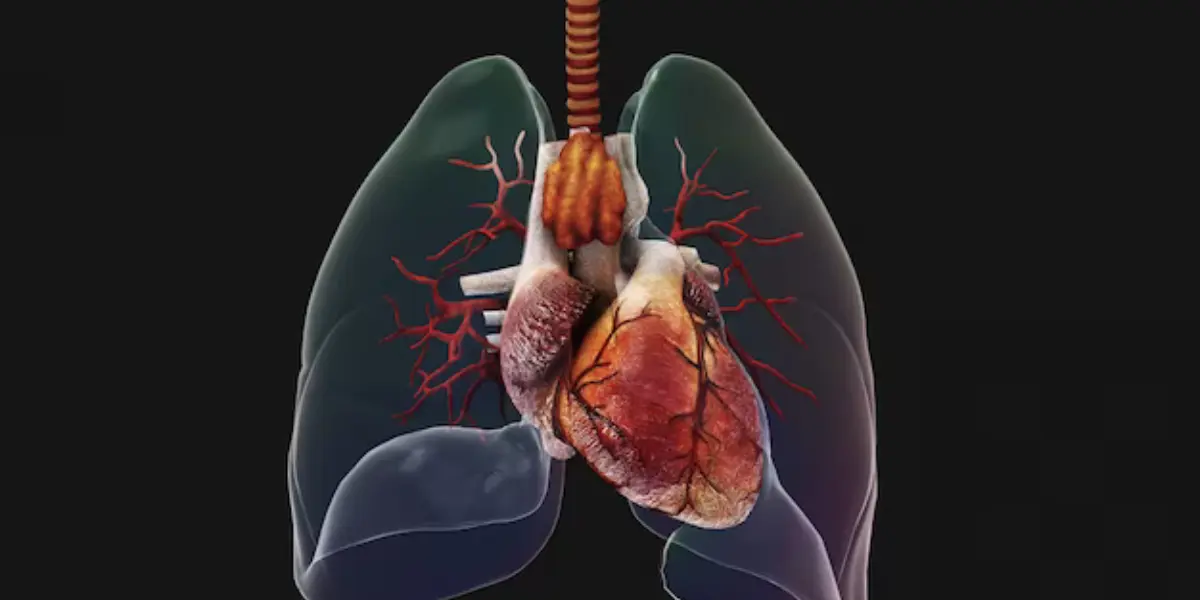Pulmonary Hypertension is a medical condition when an increased blood pressure is found in the arteries of the lungs. Arteries in the heart’s right side can also be affected with the same issue. There are different types of pulmonary hypertension in which the causes differ from one another. These may include the narrowing down of the blood vessels and the weakening of the muscles found in the heart.
Pulmonary Hypertension: Overview, Symptoms, Causes, Prevention & Treatment
Pulmonary hypertension can be treated, however, carelessness or delaying diagnosis and treatment can make the condition worse and may even become threatening to life. To avoid such severe situations, this article will make you aware of all the possible aspects of pulmonary hypertension and help you face the situation sensibly.

Symptoms Of Pulmonary Hypertension
One of the most unfortunate things about this deadly disease is that the symptoms may not be that visible. This is the major reason why the diagnosis gets delayed in many patients. The symptoms will only start to turn up at a slow pace and may not bother the patient to a great extent.
This makes them ignore the symptoms most of the time. However, in the later stages of the disease, the symptoms become worse and start to bother the patient. Some of the major symptoms that you should not avoid even if they are in the beginning stage have been discussed below.
1. Difficulty In Breathing
This may not appear just like a normal asthma case. It can be noticed when you are engaged in any sort of physical activity. You may experience the issue even when you are doing low-impact workouts. Gradually this breathing difficulty gets extended to your daily lives, even when you are not doing any physical activities.
2. Change In Skin Color
Unlike other symptoms, this is quite easy to identify. However, the original color of your skin may affect the diagnosis to an extent. People with pulmonary hypertension may have blue or grey color on their skin. Routine examination of your skin may help find out such changes earlier.
3. Chest Pain
Chest pain is also common among patients who are suffering from pulmonary hypertension. If your chest pain persists, try not to neglect it by assuming it to be a usual chest burning. Try to get prompt medical examination and expert consultation if you have chronic chest pain.
4. Dizziness
Dizziness can also be observed as a common symptom in patients with pulmonary hypertension. Apart from that, the individual may experience difficulty or fainting while speaking. If this particular combination of symptoms can be found in your case, make sure not to delay an expert consultation, since it is a highly potential symptom of pulmonary hypertension.
Causes Of Pulmonary Hypertension
The causes of pulmonary hypertension are based on the types of the same disease. You may find the different types of pulmonary hypertension below and their causes. Understanding these types and causes would also help in suspecting the disease at an earlier stage and getting timely treatment for the betterment of bothering symptoms.
1. Pulmonary Arterial Hypertension
Causes:
- Genetics: If you have a family history of pulmonary arterial hypertension, you are also highly likely to have this condition.
- Drug addiction: If you are someone who is addicted to any kind of drugs, especially those that are illegal, like methamphetamine, you may get easily infected with pulmonary arterial hypertension
- Heart diseases: If you are born with any type of heart disease, you may also develop symptoms of pulmonary arterial hypertension in your life cycle.
2. Left-sided Heart Disease-Caused Pulmonary Hypertension
Causes:
- Left heart disease: If you are suffering from any disorders or infections in the left heart, it is important not to neglect any symptoms of pulmonary hypertension.
- Left heart valve disease: Anu issues caused by the heart valves found on the left side such as the mitral or aortic valve can also cause pulmonary hypertension.
3. Lung Disease-Caused Pulmonary Hypertension
Causes:
- Sleep Apnea: if you are not getting uninterrupted sleep for an average of 7-9 hours or if you are suffering from a sleep disorder called sleep apnea, you may develop pulmonary hypertension.
- High-altitude exposure: if you are constantly working in a high-altitude terrain, you may also have an elevated risk for lung disease-caused pulmonary hypertension.
Prevention Of Pulmonary Hypertension
Pulmonary hypertension can neither be prevented nor cured. The only thing we can do in this regard is to seek consultation right from the beginning stage itself. People who have got treatment in the earlier stage have experienced significant improvement in their symptoms, which would help them lead a normal life without being bedridden.
Apart from that, we may also switch to a healthier lifestyle, to prevent the causes of pulmonary hypertension. This includes switching to a balanced and nutritious diet, working out daily, and so on. Apart from that, it is also important to quit smoking and other bad habits that may ruin the health of your lungs.
Treatment Of Pulmonary Hypertension

The treatment of pulmonary hypertension would be based on the type of disease that is affected to the patient. However, medications are the primary means of treatment for this disease. Apart from that, it is important to accept the fact that this condition cannot be cured forever.
The medications and other treatments are administered to the patient only to ease the symptoms and make day-to-day life easier for the individuals. Oxygen therapy and surgery are some of the treatments adopted by doctors to treat this condition.
Also Check:- Coronary Artery Disease: Causes, Symptoms, Treatment
Final Words
If you are suffering from this condition, make sure you are not missing out on any of your medications. This would help you live effortlessly even despite the infection. Moreover, comprehensive knowledge about the disease may also help you identify the symptoms earlier and prevent the situation from worsening further.
Being disciplined with your lifestyle changes like diet, workouts, and so on can also help you a lot in the concern. It is also important to avoid self-treatment and taking additional supplements without the consent of your doctor.
References:-
- Pulmonary hypertension. National Heart, Lung, and Blood Institute. https://www.nhlbi.nih.gov/health/pulmonary-hypertension. Accessed May 10, 2023
- American Heart Association. Pulmonary Hypertension (https://www.heart.org/en/health-topics/high-blood-pressure/the-facts-about-high-blood-pressure/pulmonary-hypertension-high-blood-pressure-in-the-heart-to-lung-system). Accessed 6/2/2022.
- Wijeratne DT, Lajkosz K, Brogly SB, et al. Increasing incidence and prevalence of World Health Organization Groups 1 to 4 pulmonary hypertension: A population-based cohort study in Ontario, Canada (https://pubmed.ncbi.nlm.nih.gov/29444925/). Circ Cardiovasc Qual Outcomes. 2018 Feb;11(2):e003973. Accessed 6/2/2022.